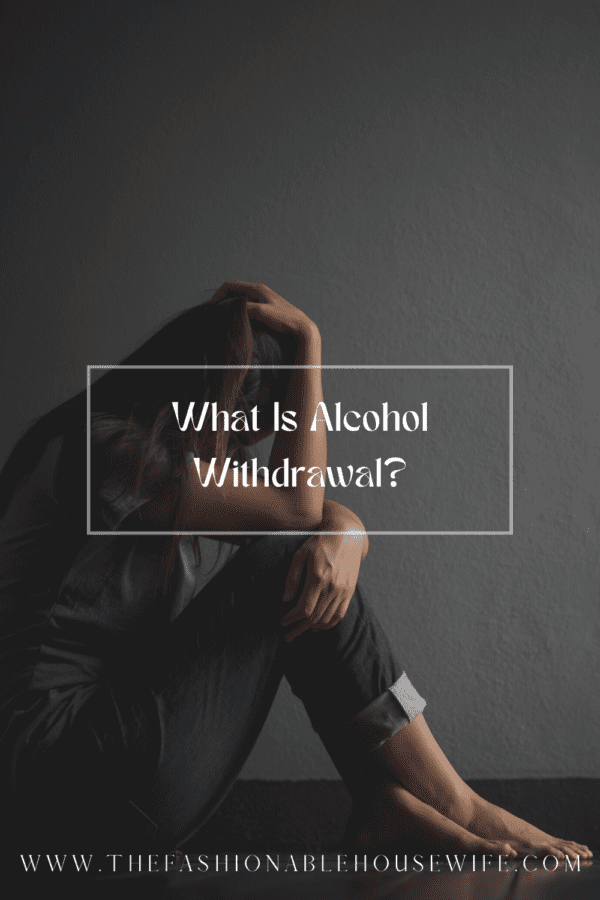
When a frequent drinker abruptly quits drinking or drastically cuts back, they experience a series of symptoms known as alcohol withdrawal. Alcohol withdrawal symptoms can be extremely dangerous. Knowing what these symptoms are and how to handle them if you are addicted to alcohol is very important.
Alcohol Withdrawal Symptoms
Alcohol withdrawal symptoms can vary in severity and duration depending on someone’s level and duration of alcohol consumption. Some common alcohol withdrawal symptoms include:
- Anxiety: Feelings of nervousness or apprehension.
- Tremors: Shaking or trembling, usually in the hands, but can also affect the head or other parts of the body.
- Sweating
- Insomnia
- Nausea and vomiting
- Headache
- Increased heart rate
- High blood pressure
- Easily becoming annoyed or angered
- Difficulty thinking or focusing
In severe cases, alcohol withdrawal can also cause hallucinations, seizures, and delirium tremens (DTs), which can be life-threatening if left untreated.
If you are experiencing alcohol withdrawal symptoms and need help, visit https://www.americasrehabcampuses.com/ and get the help you need toward a sober life.
Causes of Alcohol Withdrawal
When a person regularly drinks a lot of alcohol over a long period of time, they can become physically dependent on it. The body gets used to alcohol and as a result, it changes how it works. When you stop drinking all of a sudden, your body can go into shock, which can cause withdrawal symptoms.
Some of the factors that can lead to alcohol withdrawal are:
- Chronic alcohol consumption: If you drink a lot of alcohol for a long time, your body can become physically dependent on it. This can cause withdrawal symptoms.
- Alcohol addiction: People who are addicted to alcohol are more likely to have withdrawal symptoms when they try to stop drinking.
- Genetics: A history of alcoholism or addiction in your family can make it more likely that you will develop physical dependence and withdrawal symptoms.
- Age and overall health: Older people and those with underlying health conditions may be more vulnerable to alcohol withdrawal.
- Abrupt cessation: Suddenly stopping alcohol consumption or significantly reducing alcohol intake can increase the likelihood of experiencing withdrawal symptoms.
Treatment of Alcohol Withdrawal
Alcohol withdrawal is treated according to the severity of the symptoms. Through supportive care, such as rest, hydration, and medication, mild to moderate withdrawal symptoms, such as anxiety, dizziness, and insomnia, can be managed. In severe cases, hospitalization may be necessary for close medication monitoring and administration.
In addition to medication, counseling and support may be considered to treat the underlying causes of alcoholism and prevent relapse. In managing alcohol withdrawal, supportive measures, such as ensuring a safe and quiet environment, monitoring vital signs, and treating any other medical conditions, are essential.
Preventing Alcohol Withdrawal
Avoiding physical dependence on alcohol is the most effective method for avoiding alcohol withdrawal. This can be achieved by adopting responsible drinking habits, such as:
- Moderate drinking
- Avoiding binge drinking
- Taking breaks from alcohol
- Seeking help for alcohol dependence
Conclusion
Alcohol withdrawal can cause a range of symptoms, from mild to severe, and has the potential to be fatal. Preventing alcohol withdrawal involves practicing responsible drinking habits, seeking alcoholism treatment, and making positive lifestyle adjustments to reduce the likelihood of developing alcohol dependence. If you or someone you know is experiencing alcohol withdrawal symptoms, it is crucial to seek immediate medical attention.







